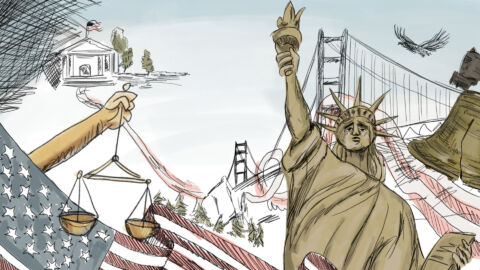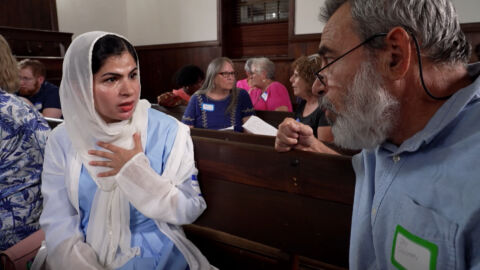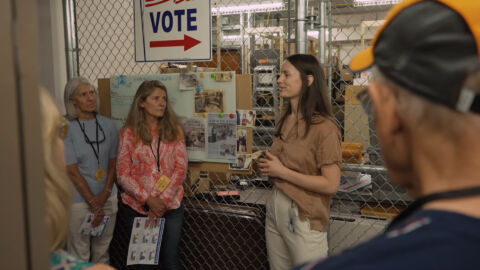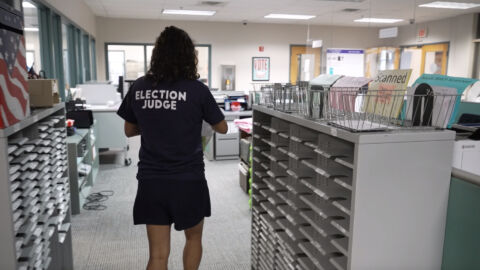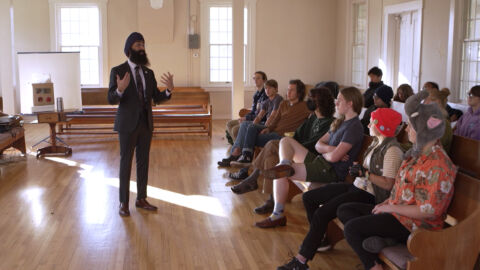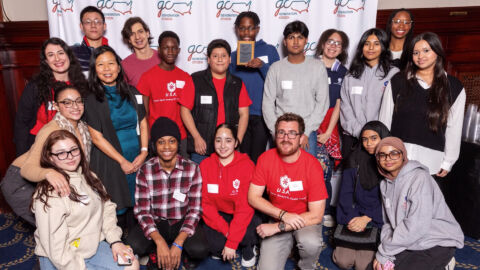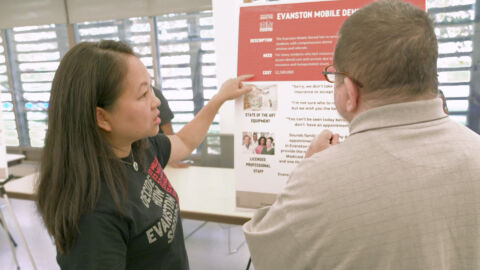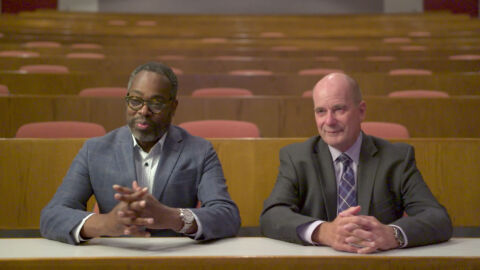How do we know if a fact is really a fact? We’re surrounded by algorithms and peer groups that feed us information on social platforms like Facebook, X and TikTok. But these days, most of us don’t have the digital literacy skills to discern what is real.
MediaWise, an innovative initiative based at the Poynter Institute, is harnessing the power of social media to empower teens to separate fact from fiction in a new digital series called “Is This Legit?”
The teen fact-checkers are part of a digital newsroom, run by MediaWise, that explores individual social videos and ranks them by their truthfulness and factual accuracy. “Is this legit?” they ask into their phone cameras. This strategy intends to make the facts accessible, and makes students feel that they are being talked to, not lectured to.
Bella Otte is a Teen Fact Checker and Student at Academy of Holy Names. She says, “I think that social media allows people to have voices who wouldn’t have it in the first place, and that’s a beautiful feature of it. But, I think it also allows for misinformation to spread, and that’s, it doesn’t take away from the pros of social media, it just gives us something that we have to be cautious of.”
“Everyone’s entitled to their own opinion, but it’s important that your opinion has information backing it.” -Bella Otte, Teen Fact Checker
The Teen Fact Checker’s posts not only call out and rank misleading information that is spreading online, but educate teens about what needs to be considered when taking in potentially misleading content online. They ask people to consider questions like: Who’s behind this information? What’s the evidence? What articles and studies support this claim?
MediaWise Director Alex Mahadevan says that this program’s enthusiastic and invested teens give him hope for the future of our country.
Otte says, “I think that misinformation can be the downfall of the country by not being able to trust one another. We’re incapable of hearing each other out. We’re incapable of learning from one another and hearing from different perspectives. And, that’s what this country is built off of.”
She is proud of this national platform where she and her fellow teen fact-checkers are taking the solution into their own hands, and making a positive impact in the online world they spend so much time in.
The book, “The Bill of Obligations: Ten Habits of Good Citizens,” by author and diplomat Richard Haass, illustrates just how critical, and also challenging, the obligation to be an informed citizen is. Haass writes:
“Seek out a range of sources and choose those that traffic in facts rather than falsehoods and conspiracies. Social media can be especially problematic, as people choose communities or follow only those who are like-minded. Misstatements and opinions are often presented as facts when they are anything but. It is not research to visit such sites and accept what they say as gospel.”
Haass adds:
“Given all this, how do we know when a fact is a fact? It is essential to differentiate among facts, misstatements, opinions, predictions, and recommendations. Facts are assertions that can be demonstrated to be so, measured, and proved. Misstatements are assertions that can be shown to be false or inaccurate.”
This is episode 5 in the 11-part digital series, A Citizen’s Guide to Preserving Democracy, a production of The WNET Group’s Preserving Democracy multiplatform initiative. The series is based on the book, “The Bill of Obligations: Ten Habits of Good Citizens,” by author and diplomat Richard Haass.


